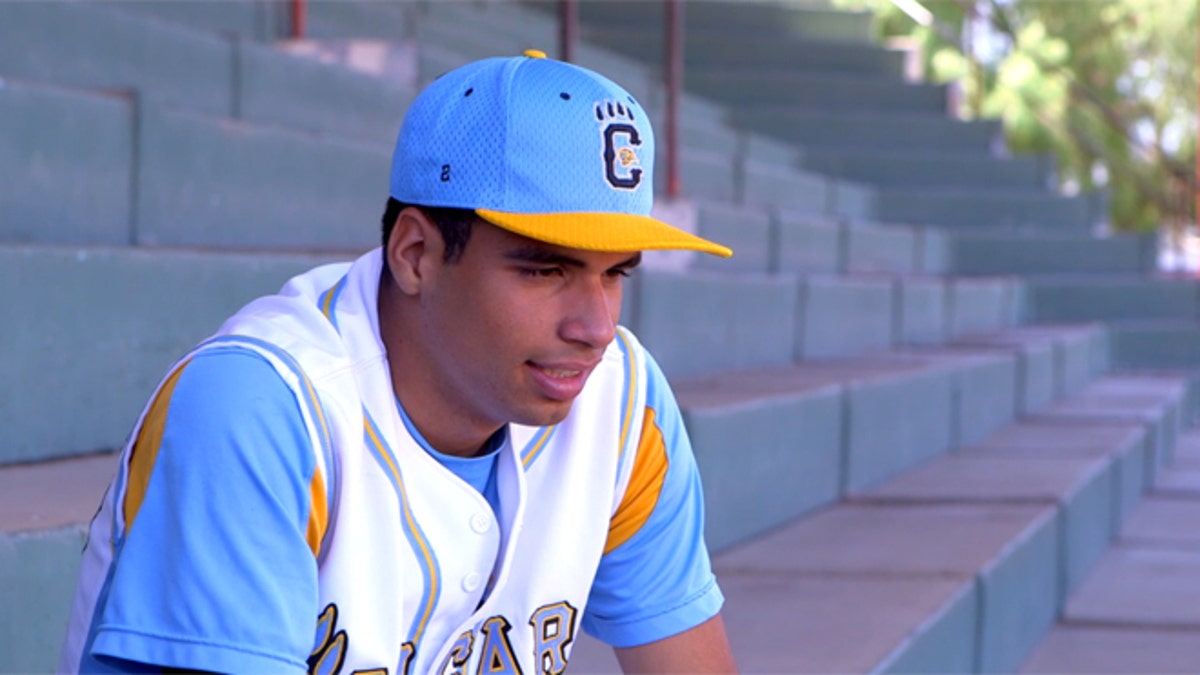
Octavio Arroyo in Tijuana, Mexico, still wearing his San Ysidro High uniform. (Source: Screen shot from ESPN)
It isn’t every day that a 24th-round pick in the Major League Baseball draft makes news, but then, there isn’t much about Octavio Arroyo that is ordinary.
The former star of the San Ysidro, California, High School Cougars baseball team’s pitching staff can throw the ball harder than 90 miles an hour. Mix in an excellent change-up and an effective curve, as ESPN describes it in a long article and video feature, and what you get is a dominant amateur player with a future in college and maybe even pro baseball.
Too bad he wasn’t in the country legally. Still, after being caught and deported in March, on Wednesday the Miami Marlins selected him with the 716th overall pick, keeping his dream alive.
Arroyo, 18, is a Mexican citizen who grew up in Tijuana and used an aunt’s address to enroll at San Ysidro despite not having a student visa.
For three years, he went to high school on a tourist visa, crossing the border illegally hundreds of times — at least once a week.
He was caught on March 29 by a Border Patrol agent who asked to see his cell phone and found photos of Arroyo wearing his high school sweatshirt.
"I miss my team, coach and friends," Arroyo told ESPN in an interview conducted before the Marlins draft. "They gave me everything.”
"He was the heart and soul of our team,” Ken Canche, Arroyo’s coach at San Ysidro High, told ESPN, “but at least he got the opportunity not many young boys from Tijuana get."
At the time, in just 8 games he had struck out 25 batters in 15 innings and had a miniscule 0.42 ERA. He had a batting average of .542.
With the help of friends and family on both sides of the border, including his 32-year-old cousin Ricardo Sanchez – a U.S. citizen who played a few years in the Boston Red Sox minor league system – Arroyo organized a pickup game in Tijuana on Saturday, June 6, two days before the 2015 MLB draft, and got a handful of big-league scouts to attend.
"This is the day you can get it all back," Sanchez told his cousin before he took the mound, according to ESPN. "Hit 90 [on the radar gun], and your future is bright."
He did, and the Marlins noticed.
According to the San Diego Union-Tribune, the team will try to secure him a work visa before he can enter the U.S. again, a process that may be complicated by a number of governmental factors.
He could also begin by playing in a Latin American league until his visa issues are cleared up.
